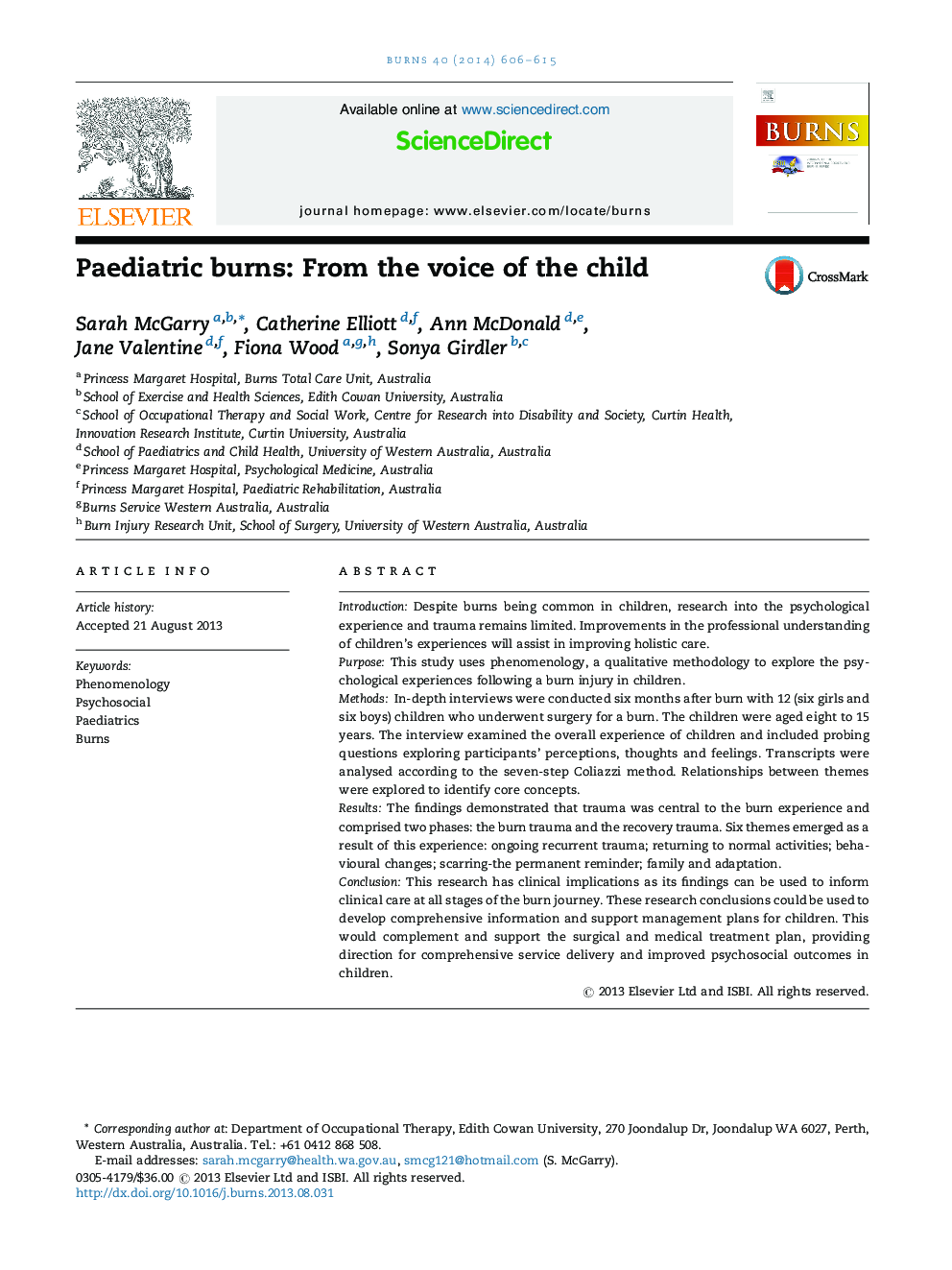| Article ID | Journal | Published Year | Pages | File Type |
|---|---|---|---|---|
| 3104484 | Burns | 2014 | 10 Pages |
IntroductionDespite burns being common in children, research into the psychological experience and trauma remains limited. Improvements in the professional understanding of children's experiences will assist in improving holistic care.PurposeThis study uses phenomenology, a qualitative methodology to explore the psychological experiences following a burn injury in children.MethodsIn-depth interviews were conducted six months after burn with 12 (six girls and six boys) children who underwent surgery for a burn. The children were aged eight to 15 years. The interview examined the overall experience of children and included probing questions exploring participants’ perceptions, thoughts and feelings. Transcripts were analysed according to the seven-step Coliazzi method. Relationships between themes were explored to identify core concepts.ResultsThe findings demonstrated that trauma was central to the burn experience and comprised two phases: the burn trauma and the recovery trauma. Six themes emerged as a result of this experience: ongoing recurrent trauma; returning to normal activities; behavioural changes; scarring-the permanent reminder; family and adaptation.ConclusionThis research has clinical implications as its findings can be used to inform clinical care at all stages of the burn journey. These research conclusions could be used to develop comprehensive information and support management plans for children. This would complement and support the surgical and medical treatment plan, providing direction for comprehensive service delivery and improved psychosocial outcomes in children.
